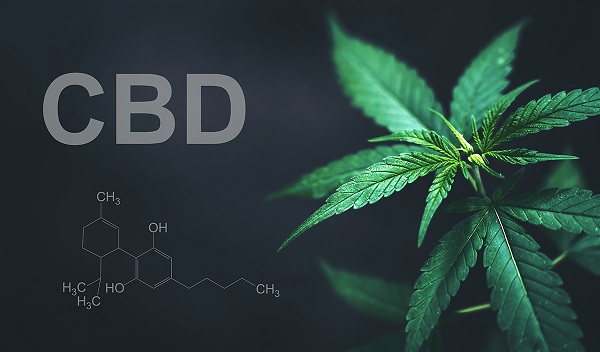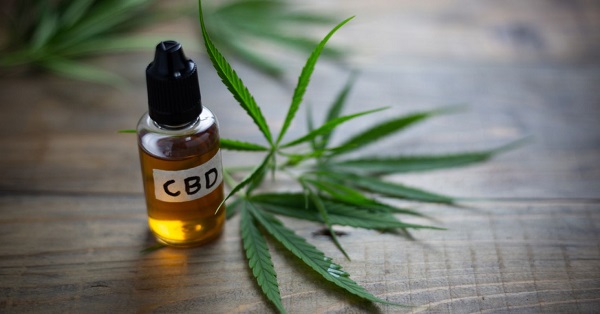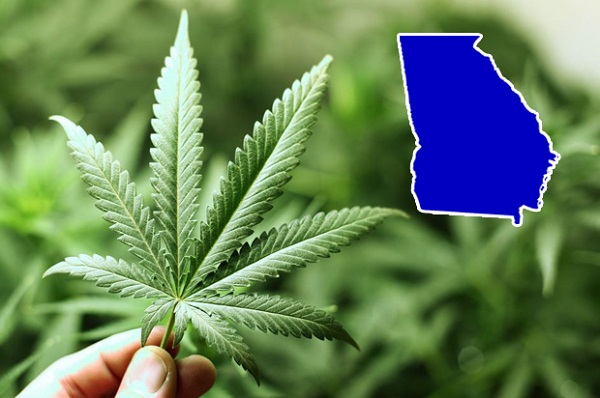Chronic pain affects millions of people worldwide, impairing their quality of life and hindering their ability to engage in daily activities. Conventional pain management approaches, such as opioids and non-steroidal anti-inflammatory drugs (NSAIDs), often come with undesirable side effects and may lead to dependency. In recent years, there has been a growing interest in exploring alternative, more natural remedies for chronic pain, and Cannabidiol (CBD) has emerged as a promising candidate.
As research on CBD has expanded, it has become evident that this non-psychoactive cannabinoid may hold promise in managing chronic pain without the psychotropic effects of THC. In this article, we delve into the scientific evidence surrounding CBD’s efficacy as an analgesic and its potential application in alleviating chronic pain.
What is CBD?

CBD is a phytocannabinoid, which means it is one of the naturally occurring compounds found in the cannabis plant (Cannabis sativa). It belongs to a class of chemicals known as cannabinoids, and the cannabis plant contains over a hundred different cannabinoids, each with its unique properties and effects.
Unlike its well-known counterpart, tetrahydrocannabinol (THC), CBD does not produce psychoactive effects or the sensation of being “high.” THC is responsible for the intoxicating effects commonly associated with marijuana use. CBD, on the other hand, does not bind significantly to the cannabinoid receptors responsible for psychoactive effects in the brain.
Potential Health Benefits of CBD
CBD, or cannabidiol, has gained significant attention due to its potential health benefits. While research on CBD is still in its early stages, several studies and anecdotal evidence suggest that CBD may offer a range of therapeutic properties. Here are some potential health benefits of CBD:
- Pain Relief: One of the most well-known potential benefits of CBD is its analgesic (pain-relieving) properties. CBD interacts with the endocannabinoid system and other receptors in the body, potentially reducing pain perception and inflammation. It may be beneficial for chronic pain conditions such as arthritis, multiple sclerosis, and neuropathic pain.
- Anxiety and Depression: CBD has shown promise in reducing anxiety and depression symptoms in both animal and human studies. It may act on serotonin receptors in the brain, influencing mood and emotional responses. Some individuals use CBD as a natural alternative to conventional antidepressants and anxiolytics.
- Neuroprotective Properties: Studies suggest that CBD might have neuroprotective effects, which means it could help protect the brain from damage and support brain health. It has shown potential in treating neurological conditions like epilepsy and multiple sclerosis (MS).
- Anti-Inflammatory Effects: CBD has been studied for its anti-inflammatory properties, which may be helpful in managing conditions with underlying inflammation, such as inflammatory bowel disease (IBD), arthritis, and certain skin conditions.
- Sleep Improvement: CBD has been reported by some users to improve sleep quality and help with insomnia. It might aid in relaxation and reduce anxiety, contributing to better sleep patterns.
- Antioxidant Properties: CBD has antioxidant properties, which can help combat oxidative stress in the body. Reducing oxidative stress is crucial for overall health and may play a role in preventing certain diseases.
- Anti-Seizure Effects: Epidiolex, a CBD-based medication, has been approved by the U.S. Food and Drug Administration (FDA) for the treatment of severe forms of epilepsy, such as Lennox-Gastaut syndrome and Dravet syndrome. This highlights CBD’s potential in managing epilepsy and seizure disorders.
- Potential Anti-Cancer Properties: Some preclinical studies suggest that CBD may have anticancer effects by promoting cell death in certain types of cancer cells and inhibiting tumor growth. However, more research is needed to confirm its effectiveness and safety in cancer treatment.
It’s crucial to note that while CBD holds promise, more extensive clinical research is necessary to fully understand its potential health benefits and long-term effects. Additionally, individual responses to CBD can vary, and not everyone may experience the same results.
CBD for Chronic Pain
CBD’s potential analgesic and anti-inflammatory properties have attracted significant attention as a potential solution for managing chronic pain.
CBD interacts with the endocannabinoid system (ECS) in the body, which plays a crucial role in regulating various physiological processes, including pain perception, inflammation, and immune response. The ECS consists of cannabinoid receptors (CB1 and CB2) and endocannabinoids produced naturally in the body. CBD indirectly influences the ECS, promoting a state of balance and homeostasis, which may be beneficial in reducing pain and inflammation:
- Inflammation is a common underlying factor in many chronic pain conditions. CBD has demonstrated promising anti-inflammatory properties, which could help alleviate pain associated with inflammatory conditions like arthritis, inflammatory bowel disease (IBD), and muscle injuries.
- CBD may influence the perception of pain by interacting with pain receptors in the brain and nervous system. Studies suggest that CBD might affect the way pain signals are transmitted, resulting in a reduced sensation of pain and discomfort.
- Neuropathic pain, caused by nerve damage or dysfunction, is often challenging to treat with conventional pain medications. CBD’s potential in providing relief from neuropathic pain has been explored in preclinical and clinical studies, showing promising results for conditions such as diabetic neuropathy and multiple sclerosis-related pain.
Possible Side Effects of CBD
CBD (cannabidiol) is generally well-tolerated by most individuals, and serious side effects are rare. However, like any supplement or medication, CBD may cause some side effects in certain individuals, especially when used in high doses. It’s important to be aware of potential side effects before using CBD. Some possible side effects of CBD include:
- Dry Mouth: One of the most common side effects of CBD is dry mouth. CBD can reduce saliva production, leading to a feeling of dryness in the mouth. Staying hydrated can help alleviate this side effect.
- Fatigue and Drowsiness: In some cases, CBD may cause feelings of fatigue and drowsiness. This effect is more likely to occur when using higher doses of CBD or when combined with other substances that cause sedation.
- Changes in Appetite: CBD has been reported to affect appetite in some individuals. While some may experience increased appetite, others may experience a decrease in appetite.
- Diarrhea: High doses of CBD may lead to digestive issues, including diarrhea. If you experience this side effect, reducing the CBD dosage or discontinuing use may help.
- Nausea: Some individuals may experience feelings of nausea when using CBD. If this occurs, it is advisable to discontinue use and consult a healthcare professional.
- Interactions with Medications: CBD can interact with certain medications, potentially affecting their metabolism and efficacy. If you are taking other medications, it’s essential to consult with a healthcare professional before using CBD to avoid potential drug interactions.
- Liver Enzyme Changes: In some cases, CBD may affect liver enzyme levels, particularly when used in high doses. This effect is more likely in individuals with pre-existing liver conditions. Regular monitoring of liver function may be necessary in such cases.
- Mood Changes: While many individuals report that CBD helps with anxiety and stress, others may experience mood changes, including irritability or mood swings. These effects can vary from person to person.
- Low Blood Pressure: In some instances, CBD may cause a temporary drop in blood pressure. If you have low blood pressure or are taking medications for hypertension, use caution when using CBD and consult your healthcare provider.
It’s important to note that the side effects of CBD are generally mild and transient, and most individuals experience no adverse effects. Additionally, the severity and likelihood of side effects can vary based on individual factors such as dosage, metabolism, and overall health.
Is CBD Legal?
The legality of CBD (cannabidiol) varies widely from country to country and within different states or regions. The legal status of CBD is primarily determined by its source and the concentration of THC.
- Hemp-derived CBD: In many countries, CBD extracted from industrial hemp is legal as long as it contains no more than a certain threshold of THC. In the United States, for example, the 2018 Farm Bill legalized hemp and hemp-derived products, including CBD, as long as they contain less than 0.3% THC by dry weight.
- Marijuana-derived CBD: CBD derived from marijuana plants, which contain higher levels of THC, is subject to stricter regulations in many places. In some countries or states, marijuana is illegal for both recreational and medical use, making marijuana-derived CBD products illegal.
- Medical Use: Some countries have legalized CBD for medical purposes only, allowing its use under specific conditions and with a prescription from a licensed healthcare provider. In these cases, access to CBD may be limited to patients with certain medical conditions.
- Recreational Use: In a few jurisdictions, both CBD and marijuana are legal for recreational use, allowing adults to purchase and use cannabis products, including those with higher THC concentrations.
It’s important to note that laws and regulations related to CBD are continuously evolving. Some countries and states may have specific restrictions on the sale, distribution, or possession of CBD products. Additionally, regulations may differ within a country, with some states or provinces having different laws than others.
Conclusion
CBD holds promise as a potential natural remedy for chronic pain relief, but it is essential to approach it with a balanced perspective. While early research and anecdotal reports suggest that CBD may offer analgesic and anti-inflammatory effects, more extensive clinical trials are needed to establish its efficacy and safety conclusively.
CBD’s potential as a complementary option for pain management should be considered alongside other evidence-based approaches, such as physical therapy, lifestyle changes, and conventional medications, as part of a comprehensive pain management plan.
When considering CBD for chronic pain, it’s crucial to consult with healthcare professionals, especially if you are already taking medications or have underlying health conditions. They can provide personalized advice and help you make informed decisions based on your unique needs.












